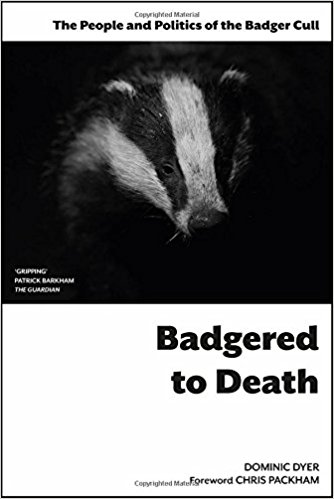 |
Cereals
| Badger Encounters in the Wild book |
![Badger Encounters in the Wild Jim Crumley [Book]](../../images/badger_encounters_in_the_wild.jpg) |
Superb
book of Jim Crumley's encounters with badgers in the wild in Scotland. The quality of the writing is superb.
A great read. Click here to buy:
Encounters in the wild
|
 Badgers will
sometimes help
themselves to certain types of grain. Most commonly, they will
help themselves to ripening wheat, oats and barley (as well as
maize). However, this is not generally a
problem which occurs throughout the year, as badgers will not
generally try to live off cereals. Badgers will
sometimes help
themselves to certain types of grain. Most commonly, they will
help themselves to ripening wheat, oats and barley (as well as
maize). However, this is not generally a
problem which occurs throughout the year, as badgers will not
generally try to live off cereals.
Cereals, particularly wheat, may be eaten, especially if other
foods are in short supply. Evidence of badgers having eaten
cereals can sometimes been seen in their droppings which may
contain seed husks and so on.
One problem is that badgers will sometimes trample small areas
of crops when playing or fighting, but, again, this is not usually
a year-round problem.
On occasion, the small areas do expand into slightly larger areas
of damage, if this allows other animals and birds into the
crops. Once maize stalks have been brought down, the crop may be
more accessible to deer and rodents who may worsen the damage;
and wild pigeons may find eat easier to cause crop damage then
previously. All this being said, badger damage may be annoying
for crop production, but it is exceptionally rare for it to be
cause of any significant economic loss. The solution is to erect suitable Fencing
to keep badgers out. A major problem for badgers is the
planting of oil-seed rape (the very-bright yellow crop seen in the
huge fields of East Anglia, Lincolnshire, Yorkshire and other
areas). The roots of the oil-seed rape crop give off a gas which
poisons or deters earthworms, As earthworms provide the main part
of the badgers diet, this crop can have
a detrimental effect on the feeding patterns of badgers and their
long-term survival. It can also help to displace badgers into
different food gathering areas - sometimes meaning that badgers
will suddenly begin to forage for worms in household gardens and
on lawns, and
on golf courses and in public parks, rather than in their traditional fields and
meadows.
| Badgered to Death |
 |
Dom Dyer's polemic on the toxic mix of farming, lobbying and politics and how fake-science lead to badger culls in England. Click here to buy:
Paperback edition
|
|
